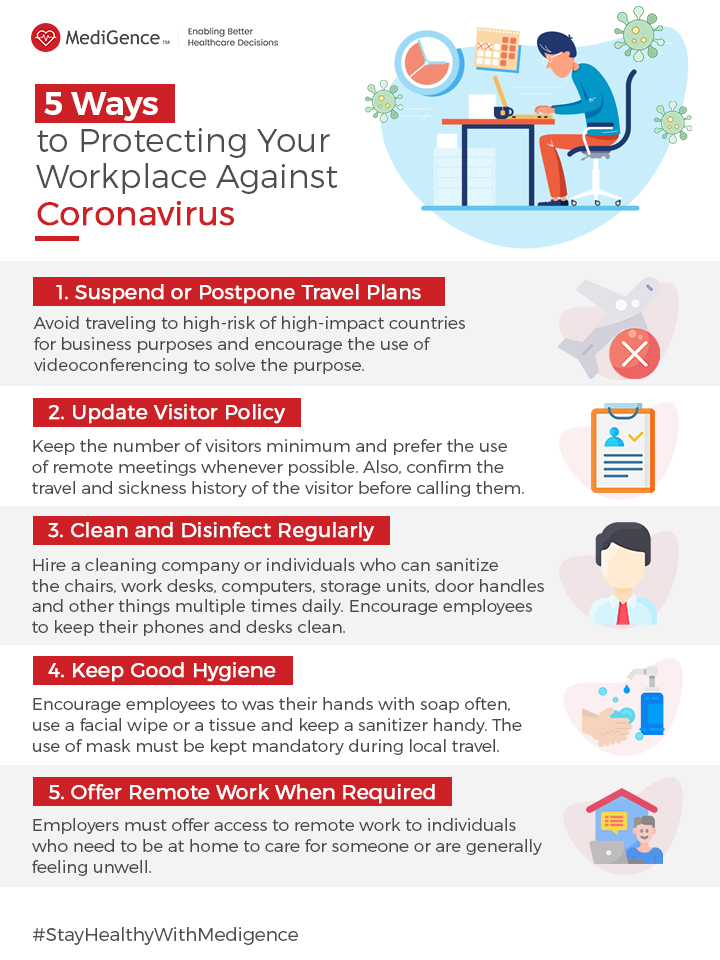The long-term success of the efforts being made by professional organizations and healthcare experts across the world against COVID-19 cannot be guaranteed without the support of the general public, including business operators and employees.
Employers and employees collaboratively have to work if we are to stop the spread of coronavirus. Considering most of the countries are now moving forward toward re-opening economies with most of the businesses resuming their operations, people should be more aware of the ways that can help contribute to the efforts of containing COVID-19 pandemic.
As people start working on-site, employers should make sure to put up posters promoting respiratory and hand hygiene. Sanitizing hand rub dispensers should be put at prominent places and it must be ensured that they are filled regularly.

Employers and employees should also look into how important or urgent it is to hold face-to-face meetings. If it can be switched to an online event or a teleconference, it must be done. There should be a response plan in place in case someone develops symptoms of COVID-19 such as fever, dry cough, or general sickness/lethargy. The mental health and social consequences of such an event at the workplace must be addressed appropriately.
If required, employers should focus on promoting teleworking as an option for the safety of their employees. People must avoid traveling in a means of public transport if the COVID-19 outbreak has been reported at the community level in the area. Limiting the number of people at the workplace will go a long way in keeping COVID-19 transmission risk to a minimum while ensuring proper social distancing norms.


